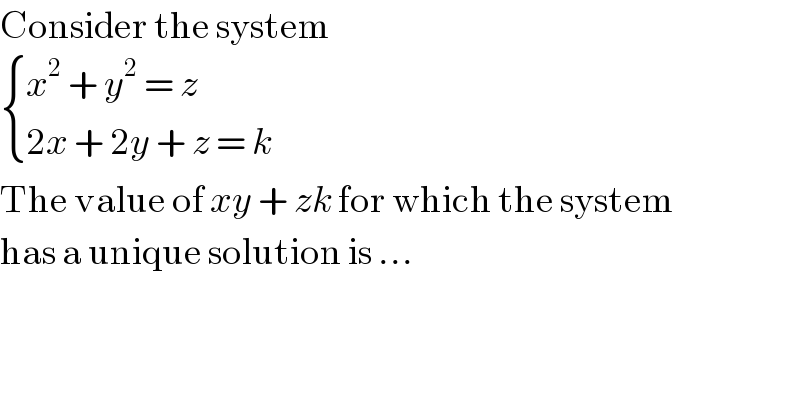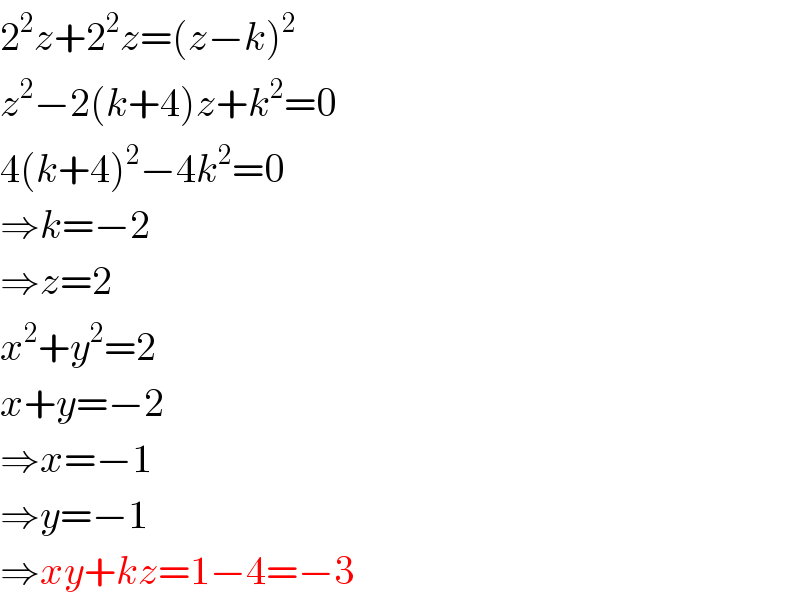
Question Number 55312 by Joel578 last updated on 21/Feb/19

$$\mathrm{Consider}\:\mathrm{the}\:\mathrm{system} \\ $$$$\begin{cases}{{x}^{\mathrm{2}} \:+\:{y}^{\mathrm{2}} \:=\:{z}}\\{\mathrm{2}{x}\:+\:\mathrm{2}{y}\:+\:{z}\:=\:{k}}\end{cases} \\ $$$$\mathrm{The}\:\mathrm{value}\:\mathrm{of}\:{xy}\:+\:{zk}\:\mathrm{for}\:\mathrm{which}\:\mathrm{the}\:\mathrm{system} \\ $$$$\mathrm{has}\:\mathrm{a}\:\mathrm{unique}\:\mathrm{solution}\:\mathrm{is}\:... \\ $$
Answered by mr W last updated on 21/Feb/19

$$\mathrm{2}^{\mathrm{2}} {z}+\mathrm{2}^{\mathrm{2}} {z}=\left({z}−{k}\right)^{\mathrm{2}} \\ $$$${z}^{\mathrm{2}} −\mathrm{2}\left({k}+\mathrm{4}\right){z}+{k}^{\mathrm{2}} =\mathrm{0} \\ $$$$\mathrm{4}\left({k}+\mathrm{4}\right)^{\mathrm{2}} −\mathrm{4}{k}^{\mathrm{2}} =\mathrm{0} \\ $$$$\Rightarrow{k}=−\mathrm{2} \\ $$$$\Rightarrow{z}=\mathrm{2} \\ $$$${x}^{\mathrm{2}} +{y}^{\mathrm{2}} =\mathrm{2} \\ $$$${x}+{y}=−\mathrm{2} \\ $$$$\Rightarrow{x}=−\mathrm{1} \\ $$$$\Rightarrow{y}=−\mathrm{1} \\ $$$$\Rightarrow{xy}+{kz}=\mathrm{1}−\mathrm{4}=−\mathrm{3} \\ $$
Commented by Joel578 last updated on 22/Feb/19

$${thank}\:{you}\:{very}\:{much} \\ $$
